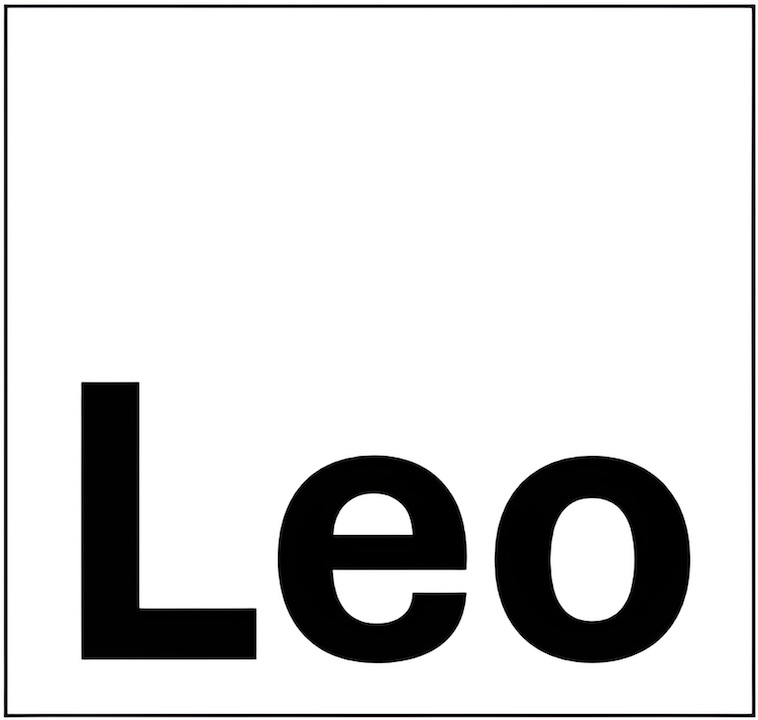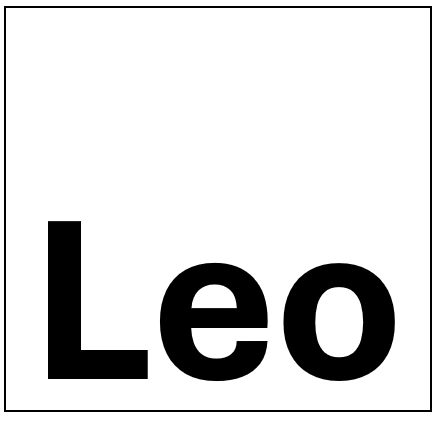The World Intellectual Property Organization (WIPO) established World IP Day (WIPD) 19 years ago to celebrate the day on which the WIPO Convention entered into force: April 26, 1970. And this year, WIPO has set as the theme for World IP Day 2024, “IP and the SDGs: Building our common future with innovation and creativity.” According to WIPO’s website, in order to reach the United Nations’ Sustainable Development Goals (SDGs), “we need to re-think how we live, work and play.” Intellectual property is, of course, a major part of this as the engine for “innovative and creative solutions that are so crucial to building our common future.”
Picture this: You own a women’s swimwear business. You engage your customers by curating eye-popping images on social media that exude athleticism and style. While browsing online, you find a photo posted by someone else of a woman in one of your pink swimsuits diving into a pool. You instantly know that this woman is exactly who your customers want to be! You share it on your profile with the caption, “Making waves wherever I go” and link to your swimsuit for purchase. Within hours the post racks up 50,000 likes and 2,000 swimsuit orders. But the excitement quickly wears off when you receive an email from a law firm representing the photographer, claiming you infringed her copyright.
United States Patent and Trademark Office (USPTO) Director Kathi Vidal on April 19 vacated a decision of the Patent Trial and Appeal Board (PTAB) that had denied institution of an inter partes review (IPR) for a lighting system patent owned by Rotolight Limited. Videndum Production Solutions challenged claims 1–19 of U.S. Patent No. 10,845,044 B2 via IPR and Rotolight argued the petition should be discretionarily denied under the factors set forth in General Plastic Industries Co., Ltd. v. Canon Kabushiki Kaisha.
On April 19, the World Health Organization (WHO) released an updated draft proposal of an international agreement on the global response to future pandemics. While the WHO pandemic agreement has been met with widespread support from many of the international agency’s member nations, including the United States, it retains provisions limiting intellectual property (IP) rights that have encouraged opposition from lawmakers and pharmaceutical innovators alike.
An en banc panel of the U.S. Court of Appeals for the Federal Circuit (CAFC) today heard arguments from LKQ Corporation, the U.S. government and GM Global Technology Operations in a case that could change the test for assessing design patent obviousness. The judges seemed interested in tweaking the existing “Rosen-Durling” test but struggled with getting the parties to clearly articulate a replacement approach that wouldn’t be potentially just as bad. The so-called Rosen-Durling test for design patent obviousness requires that, first, under In re Rosen (C.C.P.A., 1982), courts identify a prior art reference “the design characteristics of which are basically the same as the claimed design.” Next, under Durling v. Spectrum Furniture Co., 101 F.3d 100, 103 (Fed. Cir., 1996)), if such a reference is identified, the court must consider whether it can be modified based on other references to come up with “the same overall visual appearance as the claimed design.”
Speakers at IPWatchdog’s PTAB Masters 2024 program this week predicted there will be little movement on the U.S. Patent and Trademark Office’s (USPTO) Advance Notice of Proposed Rulemaking anytime soon, but some pinned their hopes for change at the Patent Trial and Appeal Board (PTAB) to the pending Promoting and Respecting Economically Vital American Innovation Leadership (PREVAIL) Act. Both panelists who typically represent petitioners and those who represent patent owners at the PTAB also agreed there are a number of ways the perception of the Board could be improved. These could include changes like allowing oral argument more often, allowing experts to testify in person, and a more meaningful rehearing procedure, for example.
U.S. Patent and Trademark Office (USPTO) Director Kathi Vidal has released a guidance memorandum for the Trademark and Patent Trial and Appeal Boards (TTAB and PTAB) on the misuse of artificial intelligence (AI) tools before the Boards that largely clarifies the application of existing rules to AI submissions. The announcement is a precursor to a coming Federal Register Notice that will provide additional guidance on the use of AI tools for the public and other USPTO departments. The guidance document suggests that part of its impetus was Supreme Court Chief Justice John Roberts’ recent year-end report, which acknowledged both the benefits and dangers of AI in the context of the legal profession.
The U.S. Court of Appeals for the Tenth Circuit issued a revised opinion on Tuesday in the case of Abitron v. Hetronic, which was on remand from the Supreme Court’s June 2023 decision vacating a $96 million damages award for Hetronic. The Court ruled last year that Sections 1114(1)(a) and 1125(a)(1) of the Lanham Act are not extraterritorial in nature and that “‘use in commerce’ provides the dividing line between foreign and domestic applications of these provisions.” The underlying case involved Hetronic’s radio remote controls, which are used to operate heavy-duty construction equipment, such as cranes. Abitron et. al. began manufacturing and selling the products primarily in Europe under the Hetronic brand and continued to do so following the termination of their distribution agreements with Hetronic.
Lyse Brillouet has been the Chief Intellectual Property Officer and Senior Vice-President, Licensing, for the Orange Group since 2018. In the latest episode of The SEP Couch, Brillouet describes why intellectual property (IP) matters within the Orange Group, which has over 130,000 employees worldwide. IP for Orange is an important outcome of various research and development projects. Orange is a technology company, with its main objective being to bring technology and related service to its customers. In some cases, Brillouet must balance the monetization of IP and the promotion of a new standardized technology. One example of this is Orange’s strategy regarding patent pools.
The U.S. Federal Trade Commission today voted in a Special Open Commission Meeting to publish and approve a final version of the January 2023 proposed rule that would ban employers from using clauses for their employees. Today’s rule allows existing non-competes to remain in force for senior executives but bans new non-competes for all workers and makes existing non-competes for all other workers unenforceable after the effective date, which is 120 days after publication in the Federal Register.
The Judicial Conference of the United States’ Committee on Judicial Conduct (Conference) and Disability issued its decision today in Judge Pauline Newman’s appeal of the Judicial Council of the U.S. Court of Appeals’ (Council) September 2023 decision to suspend her from all cases. Federal Circuit Chief Judge Kimberly Moore first identified a complaint against Newman in April 2023. IPWatchdog was the first to break the news, and the court soon published a statement responding to media reports and making previously sealed documents public…. Today’s decision denied Newman’s petition for review of the Council’s decision, holding that the Council did not abuse its discretion in refusing to transfer the proceedings to a different circuit, that Newman has not shown good cause for her failure to cooperate, and that the sanction did not exceed the Judicial Council’s authority.
February 6 is the final day of the 60-day public comment period set by the National Institute of Standards and Technology’s (NIST) request for information on its draft interagency framework for exercising march-in rights under the Bayh-Dole Act of 1980. While lauded by drug pricing advocates, almost every other sector of the American economy has come out in opposition to the draft framework. Senator Thom Tillis (R-NC), the U.S. Chamber of Commerce and the Bayh-Dole Coalition have all publicly opposed NIST’s efforts to exercise legal authority for relicensing patent rights based on product pricing considerations.
On February 27, the U.S. Patent and Trademark Office (USPTO) published a notice in the Federal Register providing updated guidance for agency decision-makers on making proper determinations of obviousness under the U.S. Supreme Court’s 2007 ruling in KSR International Co. V. Teleflex Inc. While the USPTO’s examiner guidance doesn’t constitute substantive rulemaking, it traces 15 years of case law from the U.S. Court of Appeals for the Federal Circuit to clarify several areas of confusion stemming from the Supreme Court’s calls for a flexible approach to the obviousness analysis for patent validity.

Featured Contributors
![[Avatar for Randall Rader]](https://ipwatchdog.com/wp-content/uploads/2019/10/Randall-Rader-copped.jpg)
![[Avatar for Randall Rader]](https://ipwatchdog.com/wp-content/uploads/2019/10/Randall-Rader-copped.jpg)

IPWatchdog Events
Technology Transactions: Coping with Evolving Legal Risks Associated with AI & ML (Replay)
April 29 @ 12:00 pm - 1:15 pm EDTWebinar: Benchmarking the Value of IP – How In-house and Outside Counsel Measure Efficacy and Impact
May 2 @ 12:00 pm - 1:00 pm EDT
Subscribe to IPWatchdog
This is the best way to stay informed. We send a daily roundup of our latest news, press releases, and events.
Get Email Updates
Industry Events
No Upcoming Industry Events
Check back later or promote your own!

Recent Podcasts


![[IPWatchdog Logo]](https://ipwatchdog.com/wp-content/themes/IPWatchdog%20-%202023/assets/images/temp/logo-small@2x.png)
![[Advertisement]](https://ipwatchdog.com/wp-content/uploads/2024/04/UnitedLex-May-2-2024-banner-1500x500-revised-clearer.jpg)
![[Advertisement]](https://ipwatchdog.com/wp-content/uploads/2024/04/Patent-Litigation-2024-banner-938x313-1.jpeg)
![[Advertisement]](https://ipwatchdog.com/wp-content/uploads/2024/04/Artificial-Intelligence-2024-REPLAY-sidebar-700x500-corrected.jpg)
![[Advertisement]](https://ipwatchdog.com/wp-content/uploads/2024/04/Patent-Litigation-Masters-2024-sidebar-700x500-1.jpg)
![[Avatar for Gene Quinn]](https://ipwatchdog.com/wp-content/uploads/2015/05/Gene-09-19-2023-1-copy-1.jpeg)
![[Avatar for Wen Xie]](https://ipwatchdog.com/wp-content/uploads/2022/01/XIE-Wen-Xie-Global-IP-Counselors-square-scaled-1.jpg)
![[Avatar for Madeleine Key]](https://ipwatchdog.com/wp-content/uploads/2022/02/Madeleine-Key-Head-Shot.jpg)
![[Advertisement]](https://ipwatchdog.com/wp-content/uploads/2019/07/Write-IPWatchdog.jpg)
![[Advertisement]](https://ipwatchdog.com/wp-content/uploads/2021/12/Ad-5-The-Invent-Patent-System™.png)



![[Advertisement]](https://ipwatchdog.com/wp-content/uploads/2021/12/WEBINAR-336-x-280-px.png)









![[Advertisement]](https://ipwatchdog.com/wp-content/uploads/2021/12/2021-Patent-Practice-on-Demand-recorded-Feb-2021-336-x-280.jpg)